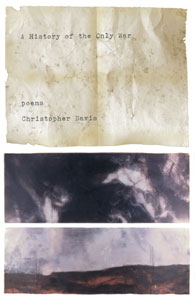
paper • 94 pages • 14.95
ISBN-10: 1-884800-66-1
TRADE
1.
This kid, in a convenience store, frowned on my fly, fingers moving
under his zipper. I tried hardening my character. He seemed so thin.
Perched cross-legged on the love hotel bed, he looks
very thin. Money he says. So it’s a trap. I’m broke
I say, offering up half of what the room cost.
He just stares at my bill in the air. Pouting,
whispering something about rice, he shows
his empty wallet. So he’s a hungry whore.
Behind his head, beyond the window,
a neon crucifix flickers, shorting out.
2.
In a landscape architect’s pickup,
workers squat around a succulent,
their uniforms the same green as the elephant-ear leaves
hiding their hands. Twilight smells of rambutan, durian,
that acrid-sweet perfume. I’ll buy each boy a soft drink,
green, cold, as sweet as it could be, my fi ngers fondling
their harps, their humming, nervous ribcages, tracing
on a notebook page the outline of my left hand, tips
of the forefi nger and thumb joined, gesturing
okay, the feeling body showing, never telling.
I find the visionary passion of Davis’ work brave and exciting. The fierce, searing beauty of its sound and sense is astringent tonic to paler versions of what passes for poetry. A History of the Only War is a heartbreaking conflation of sex, death, and the divine. But it is not some postmodern parody—this is personal. And Davis means every word. —Jeffery Skinner, from the Afterword
In the middle of a dark word/world, a torqued late lyric subject stumbles through a “battlefield,” his mouth full of pain, the background an anime montage of exactly right un-natural symbols, transient Virgils flickering like a neon crucifix. shorting out. Suddenly it seems clear that there is a language too alive and passionate to ever be either “transparent” or “opaque”: even trying to situate it on either side of that line is an effort to protect ourselves from the possibilities the empire presents. In A History of the Only War, Christopher Davis has invited us into the science of the real, modeling for us there an unflinching, embrace of the monstrous, difficult beauty all around us. —Laura Mullen